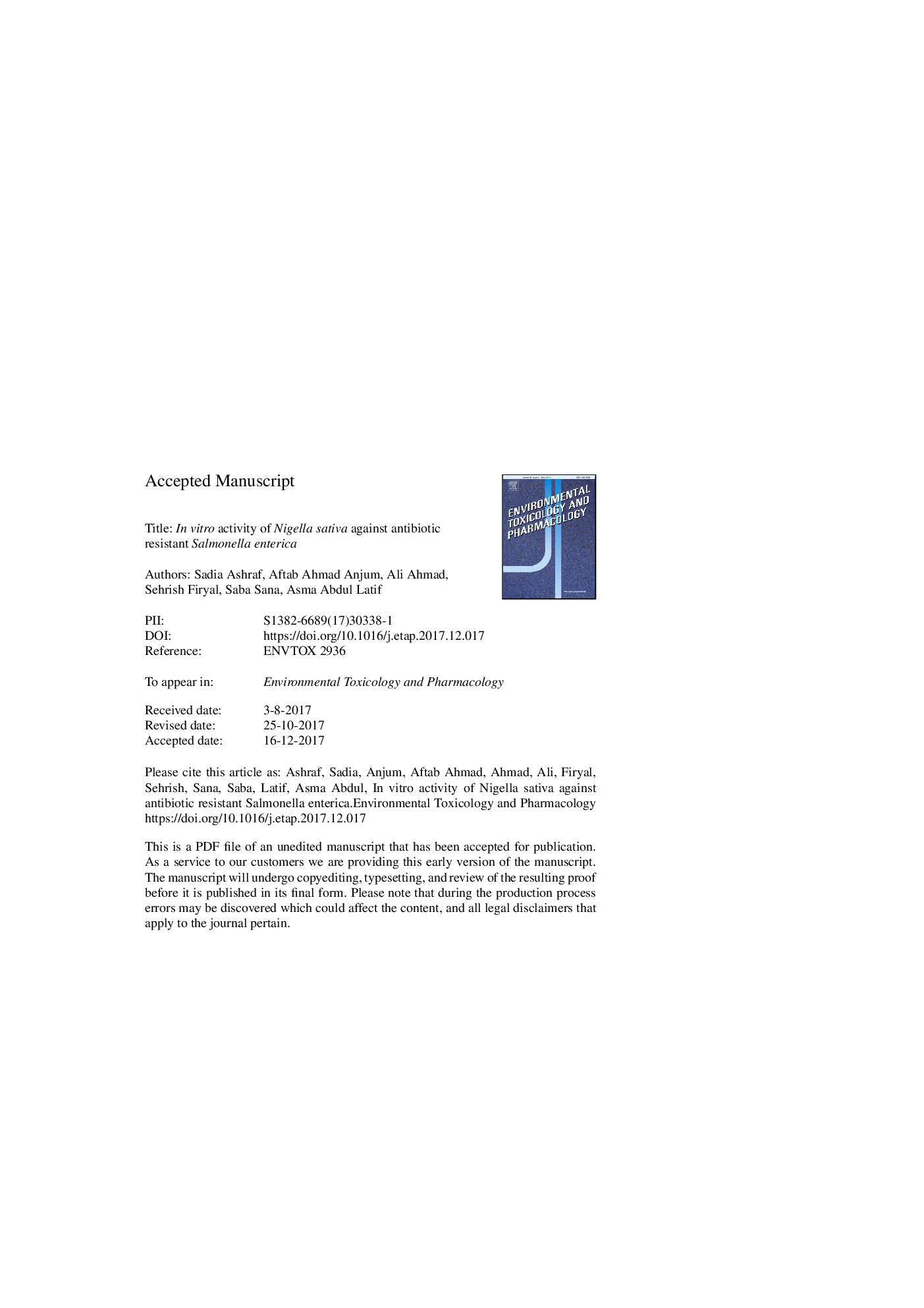| Article ID | Journal | Published Year | Pages | File Type |
|---|---|---|---|---|
| 8545994 | Environmental Toxicology and Pharmacology | 2018 | 21 Pages |
Abstract
Salmonellosis is a major food-borne disease worldwide and antimicrobial resistance in Salmonella is a public health problem. Phytochemicals are alternative therapeutics to treat antibiotic resistant Salmonella. Biochemically identified Salmonella enterica of human and poultry origin (nâ¯=â¯10) were confirmed by polymerase chain reaction. Susceptibility to antibiotics was determined by Kirby Bauer disc diffusion method. In-vitro anti-salmonella activity of N. sativa essential oil and extracts (aqueous and methanol) was determined against antibiotic resistant isolates by well diffusion and micro broth dilution method. Cytotoxic potential of N. sativa was observed by MTT assay. In S. eneterica the highest resistance (100%) was detected against nalidixic acid and ampicillin followed by oflaxacin (80%), tetracycline, co-trimoxazole and amoxicillin (60%), ciprofloxacin (40%) and gentamicin (20%). Methanol extract of N. sativa produced zone of inhibition from 35â¯Â±â¯1.00 to 17â¯Â±â¯1.00 with mean MIC value â¥562.5â¯Â±â¯384.1â¯Î¼g/mL. Essential oil showed antibacterial activity with zone of inhibition from 20â¯Â±â¯1.00 to 14â¯Â±â¯1.00â¯mm and mean MIC value â¥1000.0â¯Â±â¯322.7â¯Î¼g/mL. Aqueous extract had no anti-salmonella activity. MTT results showed more than 50 percent cell survival at concentrations >625 and >1250â¯Î¼g/mL for methanol extract and essential oil of N. sativa respectively; concentrations less than cytotoxic values required for anti-salmonella activity. It was concluded that N. sativa had in-vitro activity against S. enetrica and can be used as therapeutic.
Related Topics
Life Sciences
Environmental Science
Health, Toxicology and Mutagenesis
Authors
Sadia Ashraf, Aftab Ahmad Anjum, Ali Ahmad, Sehrish Firyal, Saba Sana, Asma Abdul Latif,
